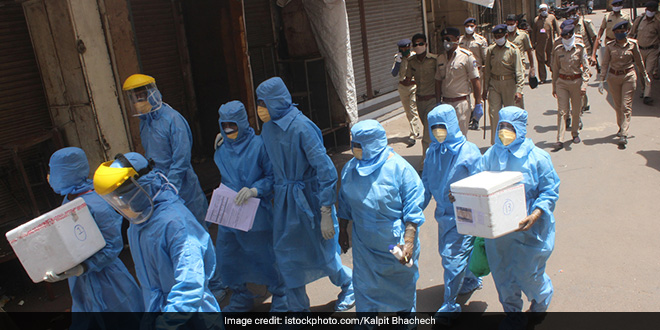Highlights
- Natural degradation of plastic is difficult: Researchers
- Because of COVID-19 pandemic, the use of PPEs has increased: Experts
- Biofuel produced from plastic is similar to fossil fuel: Experts
Dehradun: Indian scientists have suggested a method to convert the plastic used in personal protective equipment (PPE) into renewable liquid fuels, an advance that could help mitigate the problem of dumped PPE, currently being disposed of at unprecedented levels due to the COVID-19 pandemic. According to the study, published in the journal Biofuels, billions of items of disposable PPE can be converted from its plastic state into biofuels using a high-temperature chemical process called pyrolysis.
Sapna Jain, lead author of the study from The University of Petroleum and Energy Studies in Dehradun, Uttarakhand, noted in a statement,
The transformation into biocrude — a type of synthetic fuel will not just prevent the severe after-effects to humankind and the environment but also produce a source of energy. Presently, the world is focusing to combat COVID-19, however, we can foresee the issues of economic crisis and ecological imbalance also. We have to prepare ourselves to meet the challenges which are forcefully imposed by the COVID-19 pandemic, so as to maintain sustainability.
She said the disposal of PPE is a concern owing to its material — non-woven polypropylene (plastic) — adding that these are being designed for single-use followed by disposal.
According to the researchers, when these plastic materials are discharged into the environment they end up in landfill or oceans, as their natural degradation is difficult at ambient temperature. Ms. Jain said,
They need decades to decompose. Recycling these polymers requires both physical methods and chemical methods.
She said the proposed strategy is a suggestive measure addressing the anticipated problem of disposal of PPE. In the study, the scientists explored the current policies around the disposal of PPEs, their polypropylene content, and the feasibility of converting them into biofuel. They focused on the structure of polypropylene, its suitability for PPE, why it poses an environmental threat, and methods of recycling the plastic material.
Based on their analysis, the scientists call for the PPE waste to be converted into fuel using pyrolysis — a chemical process for breaking down the plastic at high temperature between 300 to 400 degree Celsius for an hour without oxygen.
Pyrolysis is the most commonly used chemical method whose benefits include the ability to produce high quantities of bio-oil which is easily biodegradable. There is always a need for alternative fuels or energy resources to meet our energy demands. The pyrolysis of plastics is one of the methods to mitigate our energy crisis, study co-author Bhawna Yadav Lamba said.
She said the challenges of PPE waste management and increasing energy demand could be addressed simultaneously by the production of liquid fuel from PPE kits.
The liquid fuel produced from plastics is clean and has fuel properties similar to fossil fuels, she said.
Also Read: COVID-19: Delhi’s Bio-Medical Waste Treatment Facilities Under Pressure Due To Increased Load
(Except for the headline, this story has not been edited by NDTV staff and is published from a syndicated feed.)
NDTV – Dettol Banega Swasth India campaign is an extension of the five-year-old Banega Swachh India initiative helmed by Campaign Ambassador Amitabh Bachchan. It aims to spread awareness about critical health issues facing the country. In wake of the current COVID-19 pandemic, the need for WASH (Water, Sanitation and Hygiene) is reaffirmed as handwashing is one of the ways to prevent Coronavirus infection and other diseases. The campaign highlights the importance of nutrition and healthcare for women and children to prevent maternal and child mortality, fight malnutrition, stunting, wasting, anaemia and disease prevention through vaccines. Importance of programmes like Public Distribution System (PDS), Mid-day Meal Scheme, POSHAN Abhiyan and the role of Aganwadis and ASHA workers are also covered. Only a Swachh or clean India where toilets are used and open defecation free (ODF) status achieved as part of the Swachh Bharat Abhiyan launched by Prime Minister Narendra Modi in 2014, can eradicate diseases like diahorrea and become a Swasth or healthy India. The campaign will continue to cover issues like air pollution, waste management, plastic ban, manual scavenging and sanitation workers and menstrual hygiene.
[corona_data_new]





























